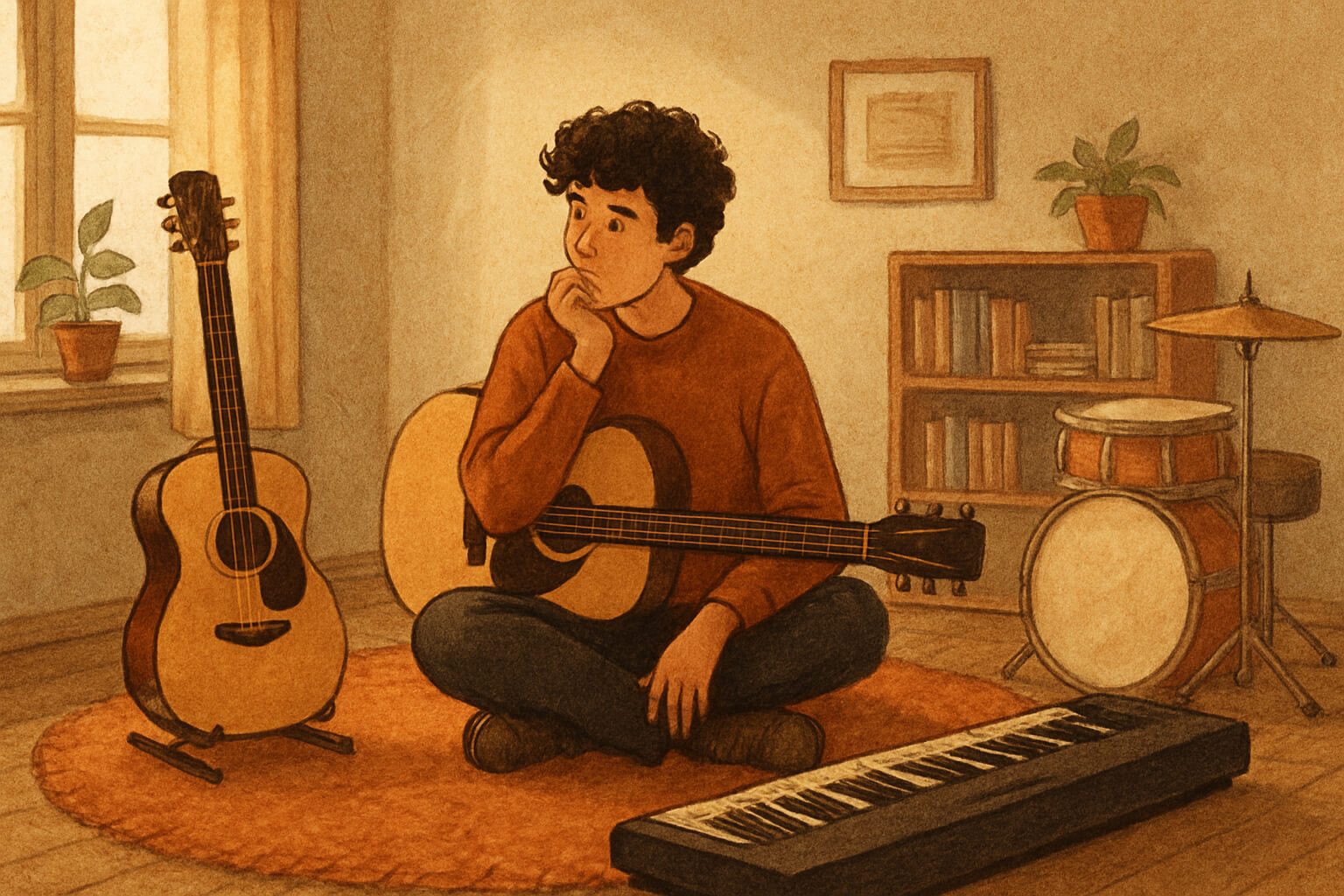Should You Learn One Instrument or Multiple?

If you’ve started learning music, you may wonder:
- Should you master one instrument before branching out, or juggle multiple instruments from the start?
- The answer depends on your goals, available time, and personal learning style. Let’s break down the pros and cons of each approach.
1. Benefits of Focusing on One Instrument
Focusing on a single instrument can lead to faster progress, allowing you to develop a deep understanding and technical mastery.
- Faster skill development — With consistent practice on just one instrument, you’ll progress faster.
- Deeper technical mastery — You can hone in on technique, tone, and repertoire specific to that instrument.
- Less overwhelm — Focusing on one skill set allows for better mental energy management.
Best for:
- Beginners who are building foundational skills
- Players aiming for performance-level proficiency
Practice Makes Perfect — Effective Strategies for Improving Musical Skills
2. Benefits of Learning Multiple Instruments
Learning multiple instruments can be incredibly rewarding and open up more musical possibilities.
- Broader musical understanding — Switching between instruments gives you a better grasp of harmony, rhythm, and structure.
- Creative inspiration — Playing a second instrument can spark new ideas for songwriting or arranging.
- More musical opportunities — You can explore different genres and play in diverse settings.
Best for:
- Intermediate players who have built confidence on their first instrument
- Musicians interested in composition, music production, or expanding their creative toolbox
The Benefits of Learning Music Theory
3. Factors to Consider Before Deciding
Time Commitment
- Learning multiple instruments requires dividing your practice time. If you only have 20 minutes a day, sticking to one instrument is probably more manageable. On the other hand, if you have more time to dedicate, exploring multiple instruments can be exciting!
Budget
How to Choose Your First Musical Instrument
4. How to Transition from One to Many Instruments
If you’re starting with one instrument but want to branch out later, here’s how to transition smoothly:
- Reach basic fluency on your first instrument — Play a few songs confidently.
- Start with an instrument that shares concepts — For example, guitar → bass, piano → MIDI keyboard.
- Keep a primary instrument as your main focus and use secondary instruments for variety or fun.
The Role of Rhythm in Music — Why Timing is Everything
Bottom Line
If you’re new to music, start with one instrument to build a solid foundation. Once you feel comfortable, adding a second instrument can enhance creativity and deepen your overall musicianship. The real goal is simple: make music you love.
How to Stay Motivated When Learning an Instrument
Featured RocketPages Learning Hub
Explore these related guides to help you along your musical journey:
Quick External Tools and Resources for Beginners:
